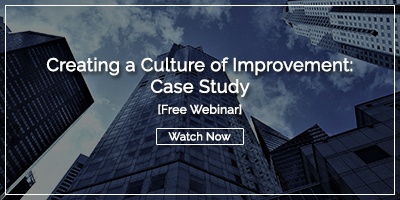 By the end of next year, Millennials (those born between about 1980 and 2000) are expected to comprise half of the American workforce. By 2025, 75 percent of the global workforce will belong to this group. Many large companies, including Ernst & Young and Accenture, have already reported that Millennials make up over two-thirds of their entire employee base.
By the end of next year, Millennials (those born between about 1980 and 2000) are expected to comprise half of the American workforce. By 2025, 75 percent of the global workforce will belong to this group. Many large companies, including Ernst & Young and Accenture, have already reported that Millennials make up over two-thirds of their entire employee base.
In some ways, millennials aren't much different than previous generations. They want the opportunity to learn and grow while making a living that will support their families.
But there are some differences in how this generation that grew up amid modern technology and global connectedness approaches work. For example, nine out of every 10 Millennials expect to change jobs every three years. This means most Millennials will have 15 to 20 jobs in their lifetimes. A far different reality than the baby boomer ideal of being a "company man" for life.
With the changing expectations of the younger workforce, employers need to adapt to find workable solutions that help everyone meet their goals. That's leading to a change in the traditional approach to employee engagement.
Company picnics and Employee of the Month programs are giving way to more meaningful engagement strategies. Here are a few that will continue to gain traction in 2020.
Connecting to a Greater Cause
As Leigh Buchanon wrote in Meet the Millennials, "One of the characteristics of millennials, besides the fact that they are masters of digital communication, is that they are primed to do well by doing good. Almost 70 percent say that giving back and being civically engaged are their highest priorities." That doesn't mean that Millennials will only work for non-profit organizations, but they want a sense of purpose. They care about who benefits from the work that they do beyond their pocketbooks.
In terms of engagement, leaders can consistently share stories of how the products and services the organization provides benefits to customers and the community. They can carve out time for employees to pursue causes they care about and create experiences that involve giving back.
Increased Flexibility and Balance
For today's younger workers, work is a thing you do, not necessarily a place you go. Sure, some work needs to be done at a designated place and time, but organizations that can offer some degree of flexibility will have an edge in the battle for top talent. According to a Deloitte study, nearly 75 percent of Millennials believe that a "work from home" or "work remotely" policy is important.
Technology can go a long way in making more flexible work arrangements possible. Cloud-based solutions allow people to work from anywhere, even on the mobile devices that they love. For example, continuous improvement software can be used to make huddle or Kanban boards available regardless of whether the employee is sitting in the office.
Employees as Brand Ambassadors
According to TalentNow, when deciding on where to apply for a job, 84% of job seekers say the reputation of a company as an employer is essential. How does an organization develop a reputation as a good or bad employer?
People talk. Your employees have a ton of formal and informal ways of sharing their experience. Review sites like Glassdoor are one way employee stories get told, but perhaps even more importantly, people chat with their friends and social media contacts. According to the public relations firm, Weber Shandwick, 98% of employees use at least one social media site for personal use, of which 50% are already posting about their company.
In addition to hurting your ability to recruit, a poor reputation as an employer can impact the bottom line. That's because 64% of consumers have stopped purchasing a brand after hearing news of that company's poor employee treatment. Employers can either fear this type of candid communication or embrace it as a recruitment and marketing tool.
Because 92% of people would consider changing jobs if offered a role with a company with an excellent corporate reputation, turning your employees into brand ambassadors makes a lot of sense.
Technology as an Enabler of Personal Development
For older generations, technology at work was something of a novelty. Some folks were frightened by the pace of change and wary of new ways of work. To Millennials, technology is ubiquitous, necessary, and transient. Not only do they want tools to help them do their jobs better, they expect them. Technology helps employees achieve better results, but also the opportunity to learn new tools is seen as an integral part of personal development. According to Gallup, 87% of millennials surveyed said professional development was an important part of their job.
It may seem odd, but although Millennials expect to change jobs frequently, they care deeply about the impact their work has on people, the environment, and their communities. They want to do excellent work and be proud of their organization. If they are (or if they aren't), they'll tell the world about it.
In 2020 employee engagement isn't a program. It's a people-first approach to aligning personal and corporate values. Organizations that get this right will be able to attract and get the most out of today's tech-savvy, highly-motivated workforce.



Add a Comment